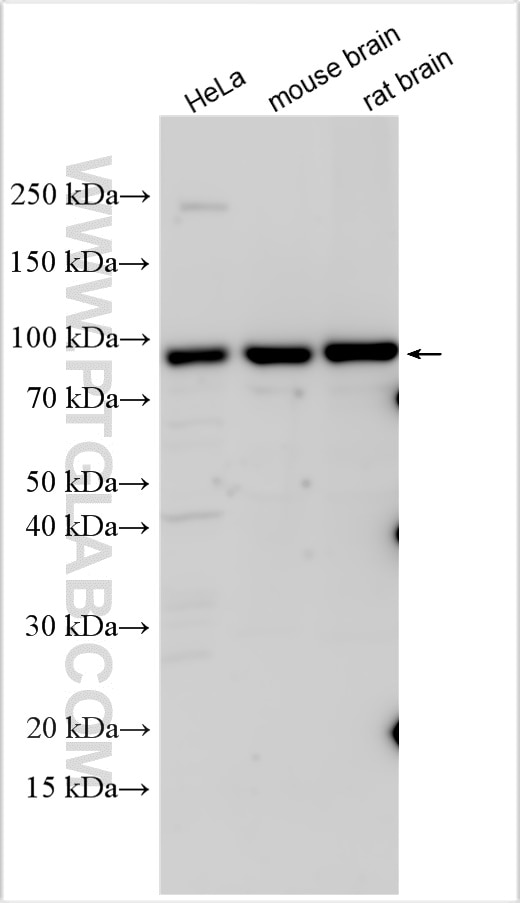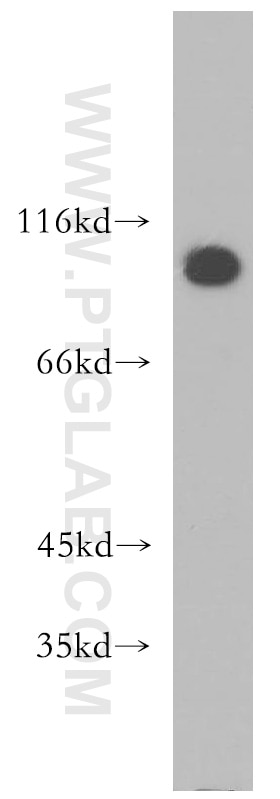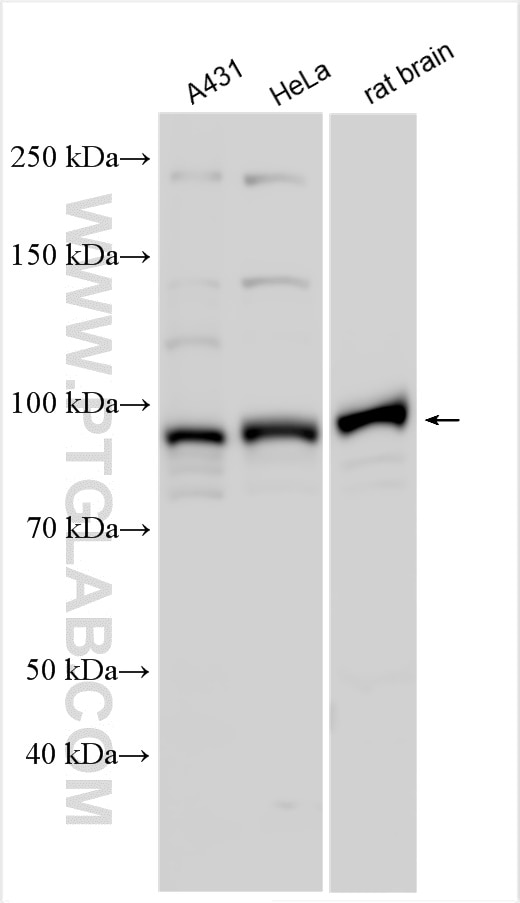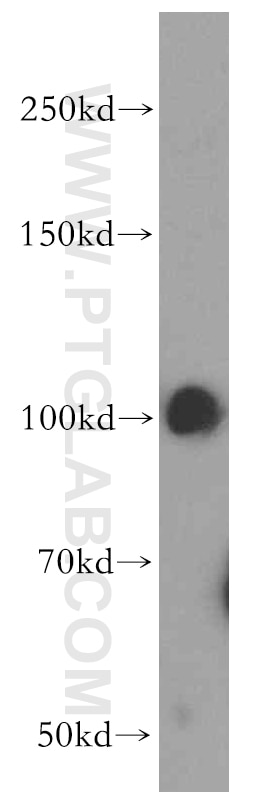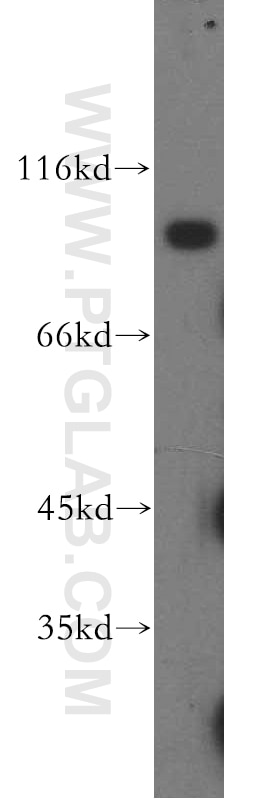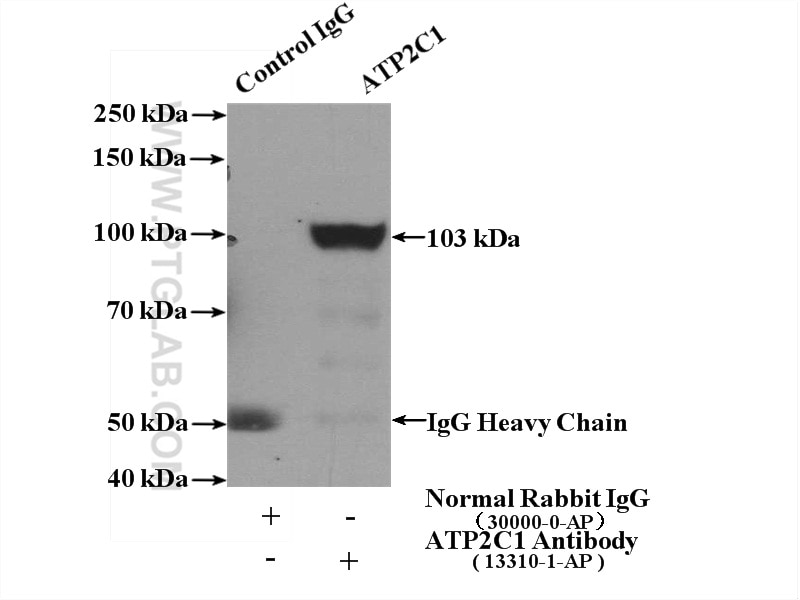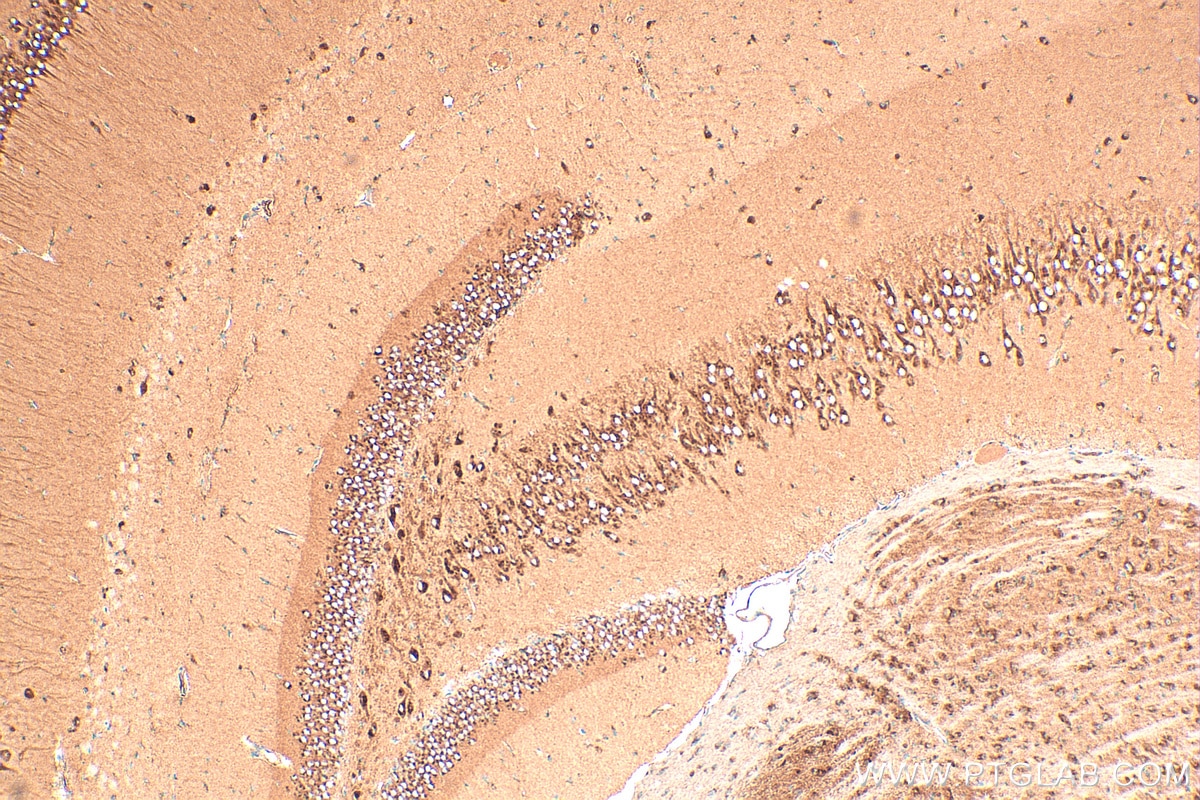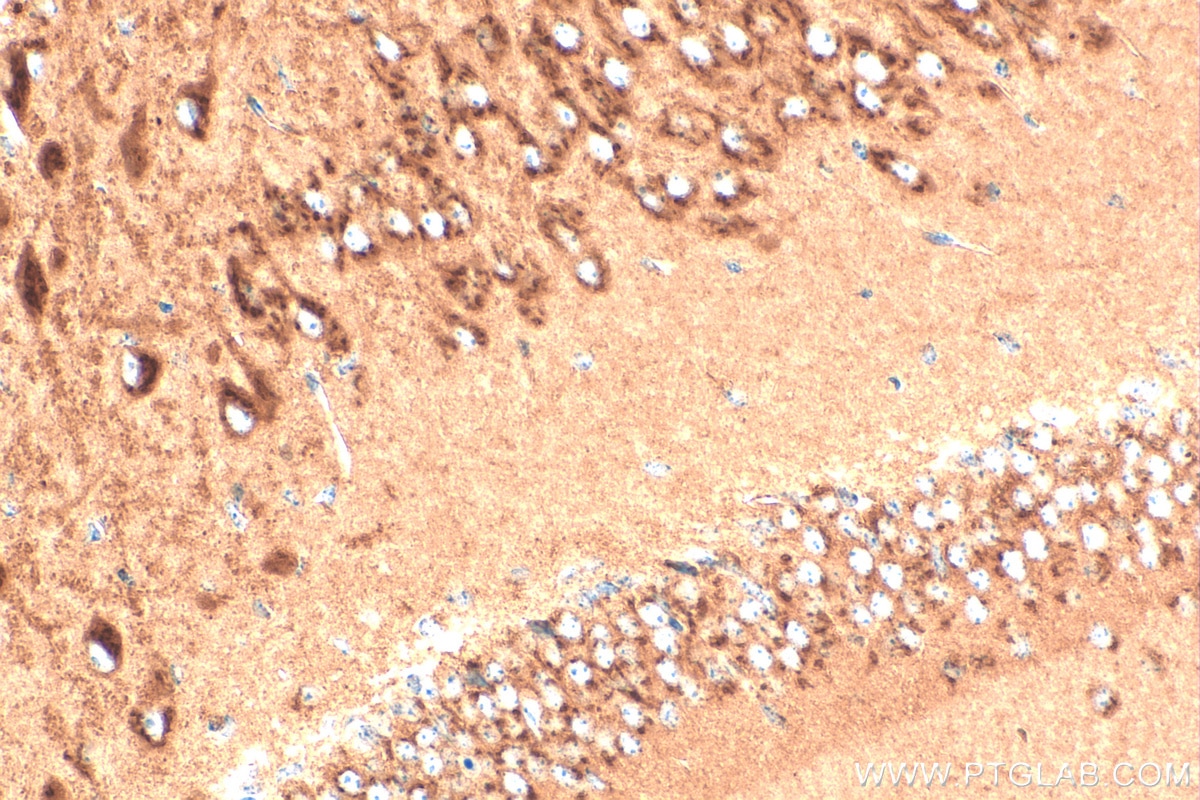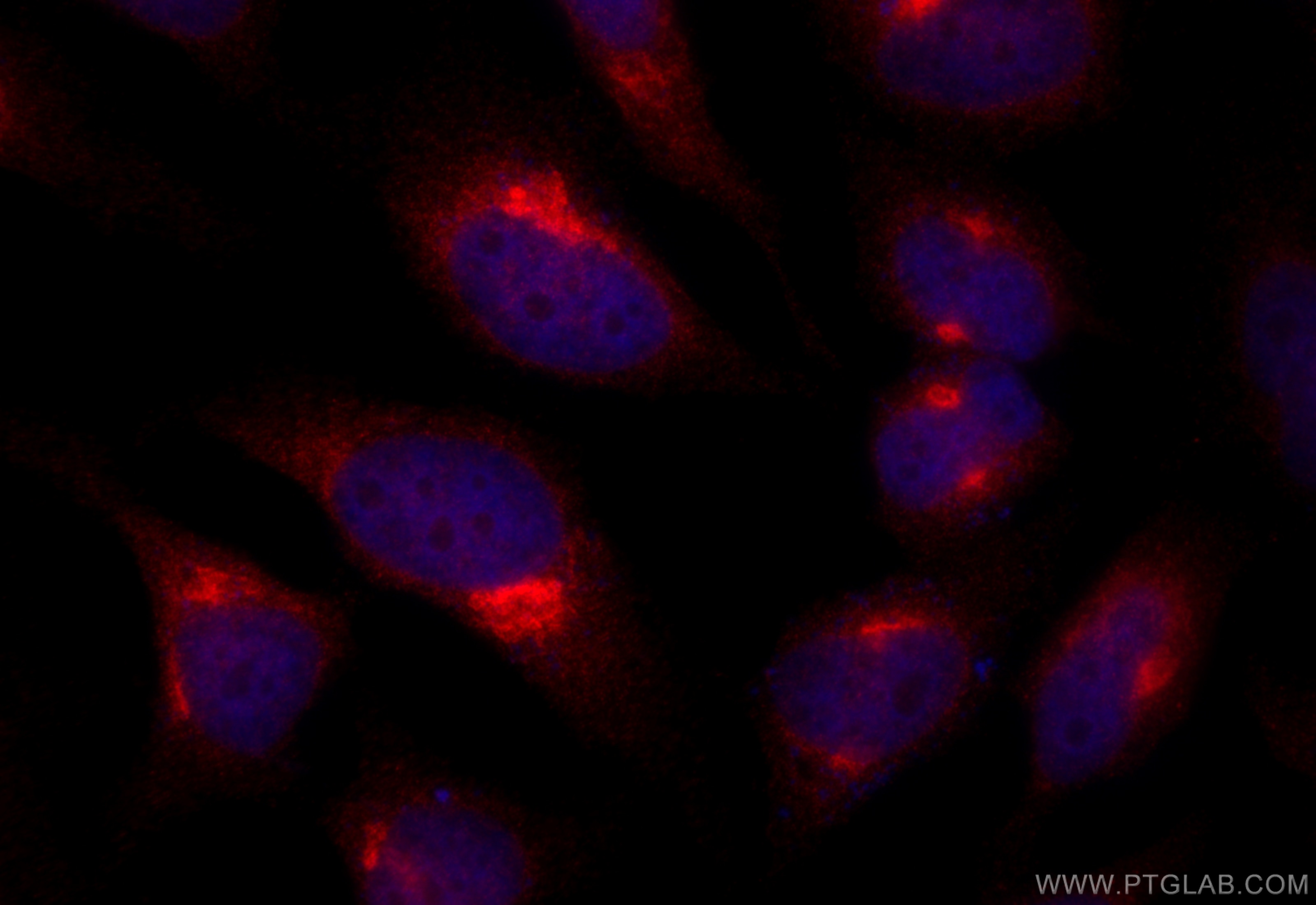ATP2C1 Polyklonaler Antikörper
ATP2C1 Polyklonal Antikörper für WB, IHC, IF/ICC, IP, ELISA
Wirt / Isotyp
Kaninchen / IgG
Getestete Reaktivität
human, Maus, Ratte
Anwendung
WB, IHC, IF/ICC, IP, ELISA
Konjugation
Unkonjugiert
Kat-Nr. : 13310-1-AP
Synonyme
Geprüfte Anwendungen
| Erfolgreiche Detektion in WB | HeLa-Zellen, A431-Zellen, humanes Hirngewebe, Maushirngewebe, Rattenhirngewebe |
| Erfolgreiche IP | Mausnierengewebe |
| Erfolgreiche Detektion in IHC | Maushirngewebe Hinweis: Antigendemaskierung mit TE-Puffer pH 9,0 empfohlen. (*) Wahlweise kann die Antigendemaskierung auch mit Citratpuffer pH 6,0 erfolgen. |
| Erfolgreiche Detektion in IF/ICC | HeLa-Zellen |
Empfohlene Verdünnung
| Anwendung | Verdünnung |
|---|---|
| Western Blot (WB) | WB : 1:1000-1:8000 |
| Immunpräzipitation (IP) | IP : 0.5-4.0 ug for 1.0-3.0 mg of total protein lysate |
| Immunhistochemie (IHC) | IHC : 1:50-1:500 |
| Immunfluoreszenz (IF)/ICC | IF/ICC : 1:400-1:1600 |
| It is recommended that this reagent should be titrated in each testing system to obtain optimal results. | |
| Sample-dependent, check data in validation data gallery | |
Veröffentlichte Anwendungen
| WB | See 6 publications below |
| IF | See 2 publications below |
Produktinformation
13310-1-AP bindet in WB, IHC, IF/ICC, IP, ELISA ATP2C1 und zeigt Reaktivität mit human, Maus, Ratten
| Getestete Reaktivität | human, Maus, Ratte |
| In Publikationen genannte Reaktivität | human, Maus, Ratte |
| Wirt / Isotyp | Kaninchen / IgG |
| Klonalität | Polyklonal |
| Typ | Antikörper |
| Immunogen | ATP2C1 fusion protein Ag4143 |
| Vollständiger Name | ATPase, Ca++ transporting, type 2C, member 1 |
| Berechnetes Molekulargewicht | 919 aa, 101 kDa |
| Beobachtetes Molekulargewicht | 95-103 kDa |
| GenBank-Zugangsnummer | BC028139 |
| Gene symbol | ATP2C1 |
| Gene ID (NCBI) | 27032 |
| Konjugation | Unkonjugiert |
| Form | Liquid |
| Reinigungsmethode | Antigen-Affinitätsreinigung |
| Lagerungspuffer | PBS with 0.02% sodium azide and 50% glycerol |
| Lagerungsbedingungen | Bei -20°C lagern. Nach dem Versand ein Jahr lang stabil Aliquotieren ist bei -20oC Lagerung nicht notwendig. 20ul Größen enthalten 0,1% BSA. |
Hintergrundinformationen
ATP2C1, also known as hSPCA1, belongs to the family of P-type cation transport ATPases. ATP2C1 is a Golgi-localized ATPase that mediates Golgi uptake of cytosolic Ca(2+) and Mg(2+) and has a role in regulating Ca(2+) and Mn(2+) cellular content (PMID: 11741891). ATP2C1 is found in most tissues except colon, thymus, spleen, and leukocytes. It is expressed in keratinocytes (PMID: 15831496, 14632183). Defects in ATP2C1 cause Hailey-Hailey disease (HHD)(PMID: 10615129, 28035777).
Protokolle
| PRODUKTSPEZIFISCHE PROTOKOLLE | |
|---|---|
| WB protocol for ATP2C1 antibody 13310-1-AP | Protokoll herunterladen |
| IHC protocol for ATP2C1 antibody 13310-1-AP | Protokoll herunterladenl |
| IF protocol for ATP2C1 antibody 13310-1-AP | Protokoll herunterladen |
| IP protocol for ATP2C1 antibody 13310-1-AP | Protokoll herunterladen |
| STANDARD-PROTOKOLLE | |
|---|---|
| Klicken Sie hier, um unsere Standardprotokolle anzuzeigen |
Publikationen
| Species | Application | Title |
|---|---|---|
J Clin Invest Chromosomal 3q amplicon encodes essential regulators of secretory vesicles that drive secretory addiction in cancer | ||
Front Cell Dev Biol A Negative Feedback Loop in Ultraviolet A-Induced Senescence in Human Dermal Fibroblasts Formed by SPCA1 and MAPK. | ||
Clin Cosmet Investig Dermatol The Pathogenic Mechanism of the ATP2C1 p.Ala109_Gln120del Mutation in Hailey-Hailey Disease | ||
BMC Pulm Med Tetramethylpyrazine ameliorates endotoxin-induced acute lung injury by relieving Golgi stress via the Nrf2/HO-1 signaling pathway | ||
Zhong Nan Da Xue Xue Bao Yi Xue Ban Ultrashort wave alleviates oxygen-glucose deprivation/reoxygenation injury via up-regulation of SPCA1 expression in N2a cells | ||
PLoS One Chemigenetic Ca2+ indicators report elevated Ca2+ levels in endothelial Weibel-Palade bodies |
Rezensionen
The reviews below have been submitted by verified Proteintech customers who received an incentive for providing their feedback.
FH Boyan (Verified Customer) (09-12-2019) | This antibody could detect endogenous ATP2C1 both for WB and IF. For WB, besides the band at the expected molecular weight, it also gives a non specific band at ~ 150 kd.
|
